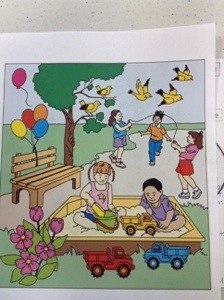Next week, our dyad school’s students will be off for Thanksgiving, meaning I have only one week left there. I’ve written about this school before, my initial discomfort at being at such a well-off private school and my goal to learn as much as possible, especially about the things I can take with me to my work in public education.
I feel like I’ve done just that; specifically, I think my pedagogy has been and will continue to be greatly influenced by the hands-on, democratic learning I saw my CT engage the students in. I know that students are capable of meeting high standards with the right support, and that students need to be heard, not just acknowledged. But I’m also walking away with something else:
I like autonomy.
I get the feeling that the adults in the school feel obligated to the students, their families, and the community and less to some faceless government entity that passes down rules and expectations. They spend more time concerned with creating the best learning environment for students and establishing meaningful relationships with families and trust that sound teaching practices coupled with high expectations will result in student learning, and far less time worried about passing standardized tests or fighting for equal funding or trying to justify experiential learning as opposed to the traditional mode of direct instruction.
Don’t get me wrong, I am incredibly excited to take up the work of a public school teacher. I’m just saying that there are some parts I’m not looking forward to. Buy I am thankful to be in a cohort model program that pushes me to think about alternative visions for our education system and this gives me hope that public schools and independent schools will not be so immensely different. Every student deserves a challenging, innovative education.
